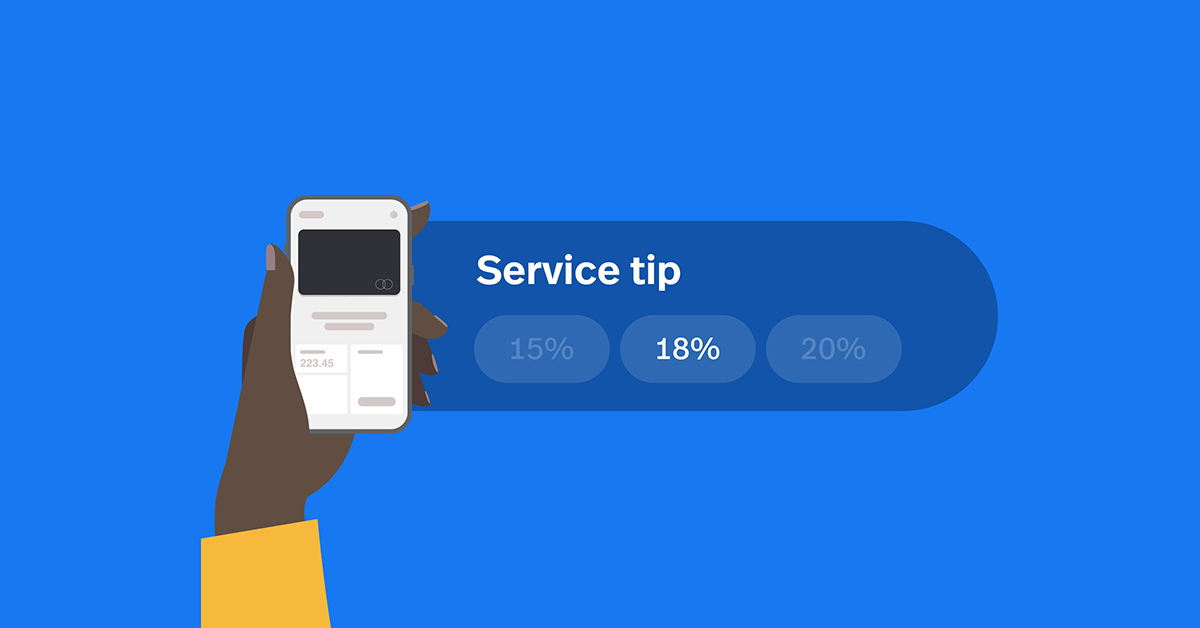
Tipping from guests and diners has long been a rewarding gesture for great hospitality and a dependable boost to workers’ incomes. However, with the public tightening their purse strings, dining out has increasingly become a luxury for many, and with this, tips have subsequently lessened. Staff have seen tipping practices dwindle in recent years, creating new challenges, but it’s not all doom and gloom for the hospitality industry.
In this blog, we’ll explore how tipping attitudes are evolving and what these changes mean for everyone involved. With a close look at the latest research and recent legal changes, we’ll outline the future of tipping and how businesses can adapt. Let’s get started.
- How is tipping changing in the UK?
- Lightspeed’s SOHI Research and what it means for the industry
- What’s happening with tipping laws?
- Lightspeed ePOS and tipping
- What does the future of tipping look like in the UK?
Want your payments to flow effortlessly through your ePOS?
Learn more about Lightspeed's all-in-one payment platform
How is tipping changing in the UK?
Traditionally, tipping in the UK has been a discretionary gesture of appreciation for a good hospitable experience, often adding a meaningful boost to workers’ earnings. But with the rise in the cost of living and economic pressures mounting, what was once a customary practice has become less predictable.
The gradual shift toward a cashless society has also changed tipping habits. Many diners now pay via card or by using contactless methods, which often means tips are added automatically to the bill or customers are presented with an additional tipping pop-up when paying through an ePOS.
It’s convenient, but this shift has shown to contribute massively to a decrease in tipping, as customers have become sceptical about who ends up with the money in their pocket. Luckily, the legal parameters around tipping have changed as of the 1st of October, 2024, meaning the hesitancy around tipping could begin to positively change.
Another factor that has contributed to the decline in tipping is inflation. Lightspeed’s State of Hospitality research concluded that more than 51% of people agreed that the rising prices of food, as well as the cost of living crisis, is affecting their eagerness to tip in restaurants. Let’s explore some of the findings below, and what this means for hospitality staff, as well as the industry as a whole.
Lightspeed’s SOHI Research and what it means for the industry
Lightspeed’s recent State of the Hospitality Industry (SOHI) research provides key insights into these shifting tipping trends across the UK. It highlights how guests and diners feel about automatic tipping and service charges, and opinions on tipping altogether at restaurants and hospitality establishments.
It may not come as a surprise that 80% of diners feel they should have more control over how much they tip, without feeling pressured by automatic tipping prompts at checkout. If your business has experienced a decline in tipping and your ePOS system includes an automatic tipping function, it may be beneficial to re-evaluate this feature and alter your tipping options and see how it impacts patrons’ tipping patterns.
Interestingly, SOHI research shows that 67% of diners either agree or are neutral about the idea of completely eliminating tipping—so long as they aren’t charged extra for their meals. That’s a significant sentiment, but it brings some big challenges for restaurant staff. If tipping were to be reduced or eliminated, servers might face a drop in their overall earnings, which could impact their morale and job satisfaction. To tackle this, restaurants might want to rethink their pricing models. Introducing automatic service charges or slightly increasing menu prices could ensure that staff are fairly compensated while keeping the dining experience enjoyable for guests.
However, here’s where it gets tricky: while a majority of diners are open to the idea of a no-tipping model, only 43% said they would be okay with paying higher prices upfront. This gap reveals a reluctance among diners to embrace a change in their payment habits. To navigate this in a way that works for your customers and your staff, restaurants can perhaps consider transparent service charges or optional gratuity models that not only ensure staff are well-compensated but also give diners the choice.
Keeping the lines of communication open about how these changes benefit both the staff and the overall dining experience will be key to easing any concerns and making a positive reception from customers. Plus, with recent legislative action aimed at improving tipping for hospitality workers, fair distribution methods have become easier to implement. This change not only simplifies business finances but also encourages customers who may have been on the fence about tipping previously. We’ll take a deeper look into these changes in the next paragraph.
With these changing attitudes, restaurants are facing new challenges: how to keep staff happy and fairly compensated while also ensuring diners feel comfortable with their tipping options. Striking that balance with transparency and neutrality will be key to maintaining a positive dining experience for everyone.
What’s happening with UK tipping laws?
In response to the long-standing concerns over unfair tipping practices, the UK government has taken action to protect workers’ rights. The Employment (Allocation of Tips) Act, which came into effect 1st October 2024, will ensure that all tips, gratuities, and service charges go directly to workers without interference from employers.
Under this new legislation, businesses will no longer be able to withhold a portion of tips for operational costs or distribution decisions that don’t favour employees. The law is designed to bring transparency and fairness to tipping, ensuring that hospitality workers receive what is rightfully theirs.
For restaurant owners, this legal shift may require a reevaluation of existing tipping policies, including how tips are distributed among staff. It’s a fantastic opportunity to bring staff together and share how tips will be distributed fairly, as well as incentivise staff, as every tip will go straight into their pockets.
How will this affect workers and servers?
For hospitality workers, the new tipping law promises greater transparency and security. No longer will they have to worry about employers taking a cut of tips—gratuities and service charges will go directly to them. This change should foster a greater sense of fairness and satisfaction among staff, as well as an incentivising motivation to provide even better service.
Lightspeed ePOS and tipping
As tipping practices evolve, restaurants need solutions to manage this change effectively, and track their tips reliably and efficiently. Lightspeed’s ePOS system offers advanced features designed to handle tipping seamlessly in a fast-paced hospitality environment, handling both physical money and cashless payments. Through built-in tipping options for card or contactless payments, Lightspeed’s platform supports back-office and financial managers to ensure that tips are easily distributed among staff, while also providing full transparency.
For businesses looking to future-proof their operations, embracing technology like Lightspeed’s ePOS can simplify the tipping process and ensure staff are rewarded promptly and fairly.
Managers can set up useful tools that allow workers to declare their take-home tips at the end of shifts to ensure staff are taking home what is rightfully theirs, while maintaining accurate records for payroll and tax compliance. With clear, detailed reporting, Lightspeed Restaurant (K-Series) ensures transparency and smooth coordination between staff, management, and accounting teams.
What does the future of tipping look like in the UK?
Looking ahead, the future of tipping in the UK is set to move away from the traditional cash-in-hand approach. With digital payments becoming the norm and service charges being included in more bills, tipping is likely to become more structured to better the pockets of hospitality workers and servers. Discretionary tipping could become less common, particularly as inclusive pricing models gain traction, however, with the new legislations, and the comfort guests may get from knowing their tips are going directly to servers, this may change declining tipping habits.
For restaurant owners, the challenge will be to balance fair pay for staff with customer expectations around pricing. By leveraging tools like Lightspeed ePOS, businesses can stay ahead of these trends, creating a tipping process that benefits both staff and customers, while maintaining operational efficiency.
Stay ahead of the game with Lightspeed
Learn more about how Lightspeed ePOS can help your restaurant adapt to the changing landscape of tipping.

News you care about. Tips you can use.
Everything your business needs to grow, delivered straight to your inbox.




